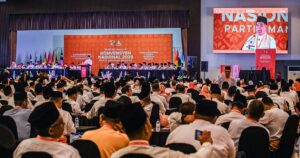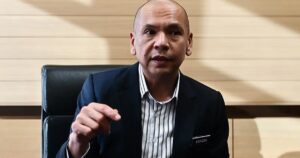
Piecemeal decentralisation deals between Putrajaya and state governments risk entrenching corruption, rent-seeking and widening inequalities, political analyst Tricia Yeoh has warned.
Yeoh, of University of Nottingham Malaysia, said while calls for greater autonomy were gaining momentum, much of Malaysia’s federal-state bargaining remained ad hoc, driven by political leverage rather than a systematic, institutionalised framework.
“States in Malaysia are not coordinated in their demands for greater decentralisation.
“The risk of individual, ad hoc demands without a systematic concerted effort is that there may be unequal concessions given to different states, depending on how ‘politically powerful’ they are, or how good their negotiating abilities are. This can entrench corruption and rent-seeking behaviour,” Yeoh said.
Fiscal pressures driving decentralisation
Yeoh, the author of “Managing State–Federal Relations” published by the ISEAS-Yusof Ishak Institute, said the main driver behind state demands for decentralisation was financial pressure.
“States are increasingly feeling the pinch of being resource-strapped. Some states that are smaller, such as Penang, would have limited land to either lease or sell, and since land is one of the few sources of revenue for state governments, this is depleting their fiscal purse, which in turn limits their ability to provide welfare benefits to their voters.
“The primary driver would be fiscal. However, states can do better at articulating a stronger case for policy autonomy as well, where money can follow the actual policy function that they can partially take over,” she said.
She added that federal dominance over oil, gas and taxation revenues had left states reliant on narrow bases such as land and forestry.
Yeoh said expanding bespoke revenue-sharing deals without reforming the fiscal framework risked ad hoc redistribution, inefficiency and disputes, pointing to the Petronas case in Sarawak as an example.
Avoiding politically skewed concessions
Yeoh said that fiscal and administrative powers devolved to states should not be awarded based on political bargaining or partisanship.
“The fiscal and administrative autonomy given to states should not be based on political affiliation or bargaining edge – for example, a richer state, a more populous state, hence more voters – but more programmatic and institutional methods.
“This means the decisions on how resources are distributed downwards are apolitical and not influenced by whether or not the states are aligned with the federal government,” she said.
Petronas-Petros as proxy battle
On the ongoing tussle between Sarawak’s Petros and Petronas, Yeoh said clarity was needed to prevent further institutional instability.
“In the specific case of Sarawak, clarity must be provided on how the Petros and Petronas dispute will be resolved, right down to the granular detail.
“A ‘shared aggregator’ model could be explored, where Petronas retains federal oversight over exports, but state firms like Petros participate in downstream allocation, ensuring both business continuity and state recognition,” she said.
More broadly, she called for reforms to the federal-state fiscal framework, including publishing at least redacted minutes of the National Fiscal Council meetings; giving states alternative tax-raising powers such as sales and service taxes or vacant property taxes; sharing part of federal consumption tax revenue with states; and establishing an independent grants commission or intergovernmental council to determine downward fiscal transfers on a formula basis.
Towards a new federalism
Yeoh said Malaysia’s federalism was evolving from a “coming together federalism” – where states gave up autonomy to form the federation – to a “holding together federalism”, where the federal government must decentralise powers to keep the nation intact.
“There is no right or wrong way of running a federation, but the answer lies in bringing all parties together in a serious discussion to have negotiations and make decisions, given how unsustainable it is in the long run to have complaints about the lack of autonomy, and more importantly uneven distribution of fiscal and administrative powers, which states will not be satisfied about,” she said.
“If we believe that it is necessary to continue as a federation, then collectively all parties representing the federal and each of the state governments need to form a permanent deliberative platform.”
She added that commitments under the Malaysia Agreement 1963 and the 18/20-Point Agreements must be honoured, including fairer oil royalty distribution, immigration rights, and Borneonisation in civil service appointments.
“Sabah and Sarawak’s original status as regions, not just ‘states’, must be upheld, as reflected in recent constitutional amendments to Article 1(2). This recognition should guide federal-state relations,” she said.
Ultimately, Yeoh said Malaysia’s federalism must be guided by clear communication and regular updates “to prevent misinformation, political manipulation, and further distrust between the federal and state governments”.






